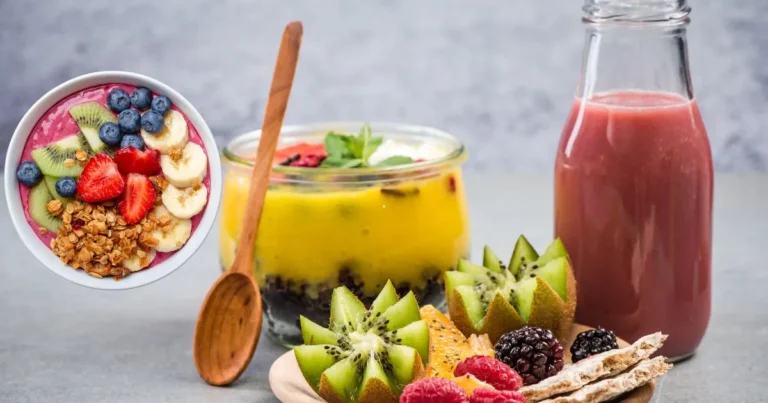Best Kids Vitamins for Healthy Growth and Development: What Every Parent Needs to Know
As a parent, there’s nothing more important than your child’s health. You watch what they eat, monitor their sleep, and make sure they get enough physical activity. But when it comes to nutrition, even the most balanced diets can fall short—especially if you’re dealing with picky eaters or fast-paced schedules. That’s where kids’ vitamins come in. Choosing the best kids vitamins for healthy growth and development can help bridge the nutritional gap, supporting everything from brain function to strong bones.
Table of Contents
If you’ve ever stood in front of a shelf full of colorful bottles wondering which one is “the best,” this guide is for you. You’re about to discover what really matters when selecting a supplement for your child—and how to do it with confidence.
Why Vitamins Matter More Than You Think
Your child is growing at an incredible rate. Their bones are stretching, their brains are developing, and their immune systems are working overtime to keep them healthy. That level of growth demands a steady supply of essential nutrients—some of which your child might not be getting from food alone.
Modern diets often include more packaged snacks than leafy greens. Even when you try your best to serve balanced meals, your child might reject certain foods or simply not eat enough of them. As a result, deficiencies in iron, vitamin D, calcium, or omega-3 fatty acids are surprisingly common.
Supporting your child’s health with the right multivitamin can:
- Improve cognitive performance and focus
- Strengthen their immune system
- Support bone and muscle development
- Prevent fatigue, mood swings, and developmental delays
Top 10 Best Kids Vitamins (Backed by Research and Reviews)
When choosing a vitamin for your child, you’re looking for more than flashy packaging. You want quality, transparency, and the right formulation. Below is a quick comparison of some of the top-rated kids’ vitamins on the market:
| Key Nutrients | Form | Best For |
|---|---|---|
| Vitamin D, Omega-3, B12 | Gummies | Overall wellness |
| C, D3, Zinc, Calcium, Iron | Chewable | Immunity + growth |
| Elderberry, C, D, Zinc | Gummies | Immune system support |
| Multivitamins + minerals | Gummies | Picky eaters |
| Iron, Folate, B12 | Liquid | Kids with iron deficiencies |
What Makes a Quality Vitamin?
To make the right choice, look for:
- Third-party certifications (e.g., NSF, USP)
- No artificial colors or sweeteners
- Allergen-free options (gluten, dairy, nuts)
- Appropriate dosage by age group
- Low sugar or sugar-free alternatives
Always check the label and consult your pediatrician if your child has specific health conditions or allergies.
The Essential Nutrients Your Child Can’t Miss
Not all vitamins are created equal, and not every child needs the same nutrients. Still, there are a few essentials that play a massive role in healthy development.
Vitamin D
Your child needs this for bone health and immune support. If they spend little time outdoors or live in a cloudy climate, they’re likely not getting enough through sunlight alone.
Calcium
Crucial for strong bones and teeth, calcium should be consumed daily. If your child avoids dairy, a supplement becomes even more important.
Omega-3 Fatty Acids (DHA/EPA)
Essential for brain development, especially in the early years. Omega-3s can help improve concentration, behavior, and even sleep.
Iron
Supports healthy blood and energy levels. Kids on plant-based diets or those who skip meals often are at higher risk of deficiency.
Vitamin C and Zinc
These are your child’s immune system boosters. They help fight off infections and speed up healing from minor cuts and colds.
Should You Choose Natural or Synthetic Vitamins?
It’s a fair question. Natural vitamins often come from whole food sources and are free from fillers, but they can cost more. Synthetic versions are usually cheaper and easier to find—but are they effective?
Here’s the breakdown:
Natural Supplements
- More bioavailable in some cases
- Often include added phytonutrients from food
- Typically free from artificial ingredients
Synthetic Supplements
- Scientifically formulated for stability and potency
- Just as effective for certain nutrients like folic acid
- More affordable and widely available
You don’t need to pick sides. Instead, choose what fits your child’s needs, your values, and your budget—while always reading labels carefully.
How to Pick the Best Kids Vitamins for Your Child’s Needs
Not every child needs the same vitamin. Here’s how to narrow it down:
1. Match the Supplement to Their Age
- Toddlers (1–3 years): Look for lower dosages, preferably in liquid or gummy form
- Kids (4–8 years): Multivitamins with calcium, D3, and iron work best
- Pre-teens (9–13 years): Add omega-3s and higher levels of B-vitamins
2. Consider Your Child’s Diet
If your child doesn’t eat enough:
- Fruits & vegetables → Focus on vitamins A, C, and fiber
- Protein (meat, fish) → Choose a formula with iron and B12
- Dairy → Look for calcium and vitamin D3
3. Factor in Taste and Texture
If your child refuses pills, opt for chewables or gummies. If they have a sensory aversion to texture, a flavored liquid may work best.
Boost Nutrients Naturally with These Smoothie Recipes
Supplements are great, but don’t overlook whole food sources. You can blend a variety of nutrients into your child’s favorite drink with these easy smoothies:
| Smoothie Name | Ingredients | Benefits |
|---|---|---|
| Berry Boost | 1 cup strawberries, ½ banana, ½ cup Greek yogurt, 1 tbsp chia seeds, ½ cup almond milk | Vitamin C, Calcium, Omega-3 |
| Green Power | 1 cup spinach, ½ avocado, ½ apple, 1 tbsp flaxseed, 1 cup oat milk | Iron, Fiber, Omega-3 |
| Tropical Immunity | 1 cup pineapple, ½ orange, 1 tsp turmeric, ½ cup carrot juice, 1 tsp honey | Vitamin C, Beta-carotene, Zinc |
These recipes not only provide natural vitamins and minerals but also build healthy habits in your child from a young age.
Avoid These Common Mistakes When Choosing Vitamins
You’re doing your best, but even well-meaning parents can make mistakes. Watch out for:
- Relying too much on marketing – “All-natural” doesn’t always mean healthy
- Ignoring sugar content – Some gummies contain more sugar than a piece of candy
- Over-supplementing – Too much of certain vitamins (like A or D) can be harmful
- Skipping professional advice – Always consult your pediatrician for tailored guidance
FAQs: Best Kids Vitamins for Healthy Growth and Development
What are the best kids vitamins for picky eaters?
Choose chewable or gummy multivitamins with iron, zinc, and B-complex vitamins. Brands like Hiya and SmartyPants are great for picky eaters because they taste good and are nutrient-dense.
At what age should I start giving my child vitamins?
You can usually start after 12 months if your child has dietary gaps. Always ask your pediatrician before introducing supplements.
Are gummy vitamins good or bad for kids?
They’re fine in moderation if low in sugar and free from synthetic additives. But be cautious—too many gummies can lead to overconsumption.
Can my child take more than one supplement at a time?
Only under medical supervision. Overlapping nutrients in different supplements can result in toxicity—especially with fat-soluble vitamins.
Conclusion: Set Your Child Up for a Healthy Future
When it comes to your child’s health, you’re already doing more than enough just by caring this deeply. But adding the best kids vitamins for healthy growth and development into their daily routine can offer that extra peace of mind. Whether you go for a top-rated multivitamin or choose to supplement with nutrient-packed smoothies, you’re laying a foundation that will benefit your child for life.
Remember, it’s not about perfection—it’s about progress. The right supplement is one that supports your child’s unique needs while fitting seamlessly into your daily routine.
Ready to Take the Next Step?
Check your child’s current diet and consider what nutrients might be missing. Then, choose a vitamin that fills those gaps—without the sugar or fillers. If you’re unsure, talk to your pediatrician for a personalized recommendation. You’ve got this, and your child’s bright, healthy future starts today.
👉 Want more tips on kids’ health and nutrition? Subscribe to our newsletter and get doctor-backed wellness advice straight to your inbox.








